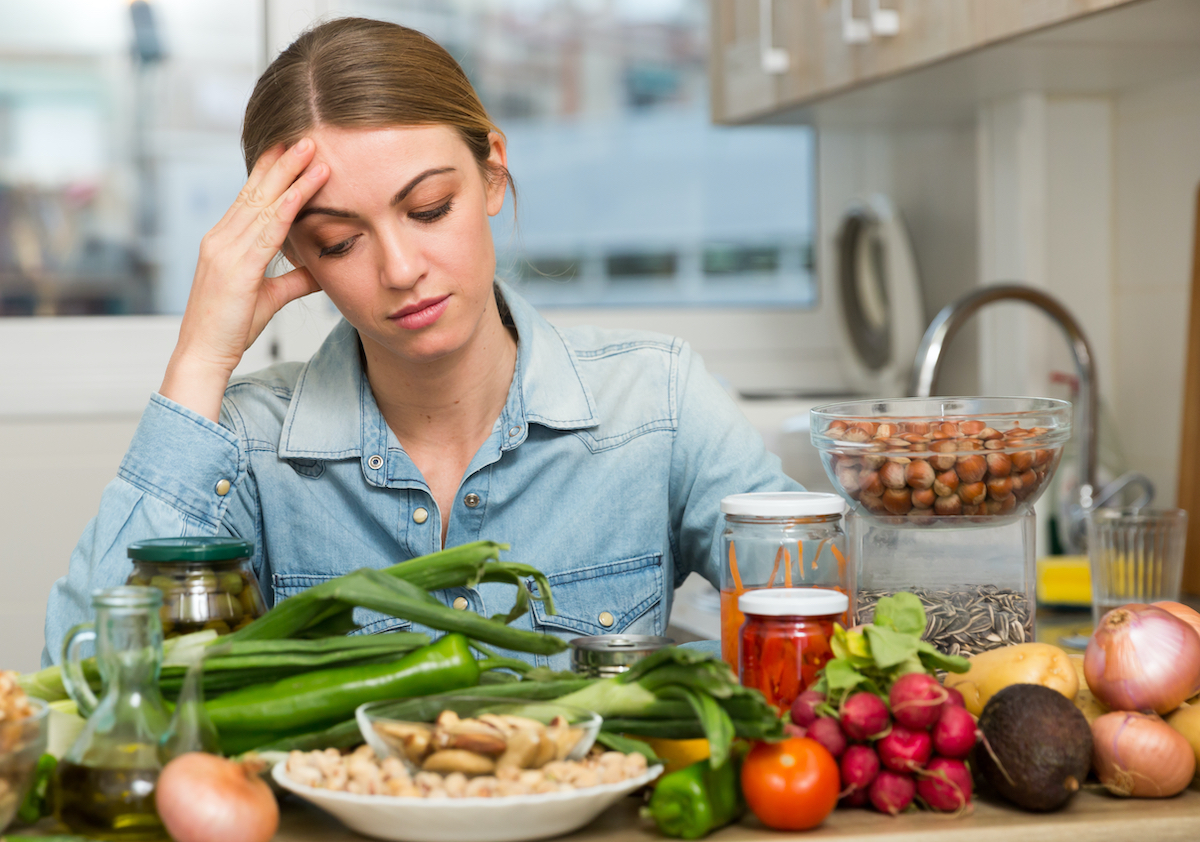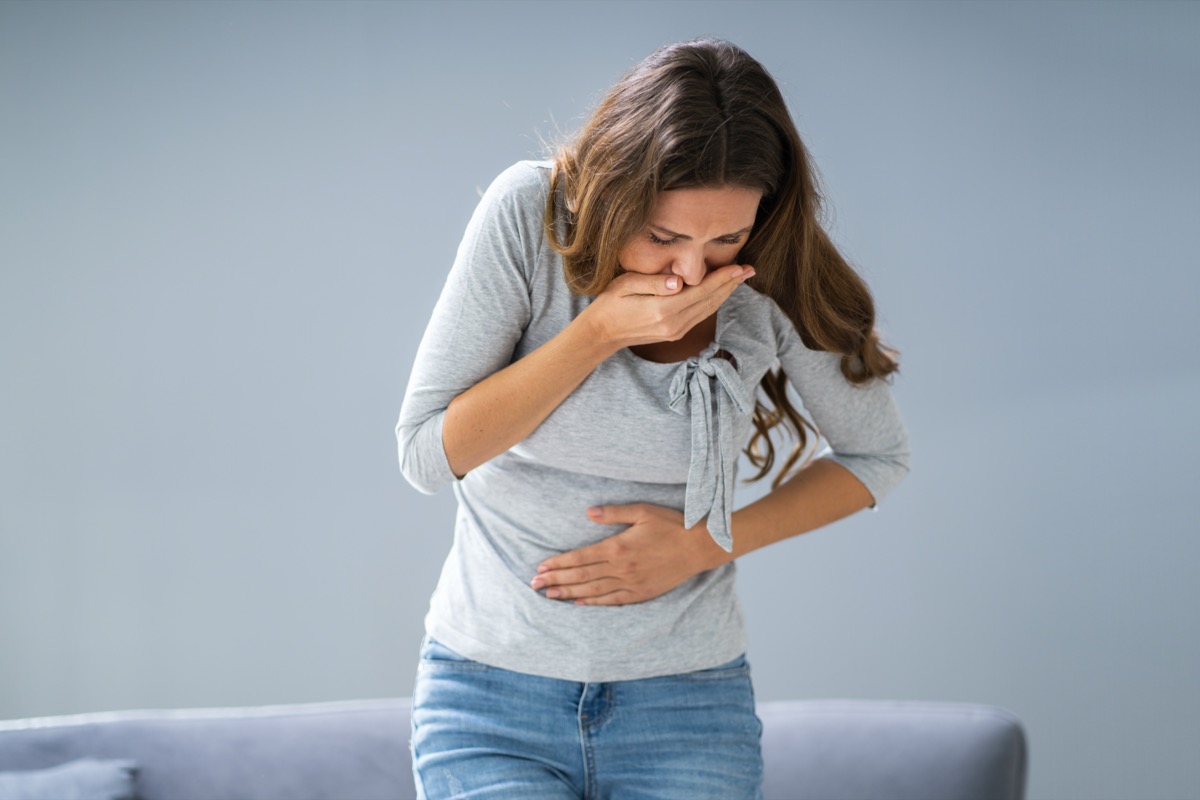5 Food-Related Symptoms COVID Patients Say They've Had

Dehydration is not just a case of feeling a little bit parched. Dizziness, headache, muscle cramps, and more symptoms could be signs that you need to drink more fluids.
Similarly, symptoms of COVID-19 can range from a dry cough to a high fever. We gathered some of the top food-related symptoms reported in individuals with the disease. (And to help keep your immune system strong, here is The One Vitamin Doctors Are Urging Everyone to Take Right Now.)
Upset stomach and diarrhea.

Gastrointestinal issues were linked to COVID-19 in an analysis of patients at three Chinese hospitals, according to WebMD. The review "found that almost 1 in 5 had at least one gastrointestinal symptom, such as diarrhea, vomiting, or belly pain."
Though these symptoms don't necessarily mean that you have COVID-19, it's best to use a separate bathroom until you confirm your status with a test. "Those with digestive symptoms were more likely to have a positive stool test for the coronavirus," WebMD says. "It also took them longer to clear the virus from their bodies, compared to those without gastrointestinal symptoms."
Related: The 7 Healthiest Foods to Eat Right Now
No appetite.

Though consuming foods like bone broth, leafy greens, protein bars, vegetable soup, and more can help your immune system fight off COVID-19, you may not feel hungry if you have the disease. Almost 80% of the patients in the previously mentioned analysis of patients in China "also lacked an appetite," according to WebMD.
Though more research is needed, a new study found that green tea contains chemical compounds with the ability to block the function of a SARS-CoV-2 enzyme. The beverage is also a great way to stay hydrated if no food or drink sounds appealing. (For more, here are 5 Grocery Store Items That Help You Combat COVID.)
Nausea.

Like diarrhea and a loss of appetite, nausea isn't one of the most common symptoms of COVID-19—but it may be an early indicator that you have it. A December 2019 study of 138 patients with COVID-19 in Wuhan, China, found that 10% "initially presented with diarrhea and nausea one to two days prior to development of fever and dyspnea."
"Many reasons can probably cause nausea and vomiting, including virus infection, systemic inflammatory response, drug side effects, and psychological distress," according to a review published in the Journal of Microbiology, Immunology, and Infection in October 2020. "Recognizing characteristics of nausea and vomiting can raise the suspicion of COVID-19, leading to early testing and diagnosis of the disease, and help people fight the virus in the long run."
If you develop nausea and have recently been in contact with someone who has tested positive, contact your doctor, the Center for Science in the Public Interest says. If you do have digestion issues, we found out the answer to this question: "Can Ginger Ale Really Help Cure Your Stomachache?"
Loss of taste and smell.

The loss of smell or taste is a widely discussed symptom of COVID-19, which can develop between two and 14 days following exposure to the coronavirus, according to the Centers for Disease Control and Prevention. Unlike digestion issues, fatigue, and muscle aches, losing your sense of smell and/or taste may not be as painful as it is worrisome.
"Some research suggests that loss of smell or taste might be an early predictor of COVID-19," according to the Mayo Clinic. Eating berries and frozen veggies may not appeal to your senses in this state, but they're two ingredients on our list of grocery store foods that can stimulate your immune system during COVID-19. For a list of what to avoid, check out Foods You Shouldn't Eat if You Have COVID.
Sore throat.

This symptom can easily be confused with allergies, a cold, or the flu. Post-nasal drip can cause soar throat, but so can COVID-19. "A sore throat, also called a throat infection or pharyngitis, is a painful inflammation of the back part of the throat," according to Harvard Health Publishing. There are certain grocery store staples that can reduce inflammation associated with certain medical conditions and autoimmune diseases, including one popular baking ingredient.
To get more tips on how to stay safe during the coronavirus pandemic, sign up for our daily email newsletter!








